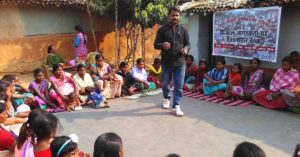Jamnalal Bajaj Awards: Honouring The Gandhian Heroes Building India’s Tomorrow at the Grassroots
This year, the Award for Outstanding Contribution in the Field of Constructive Work was given to Gandhian and social activist of Uttarakhand, Dhoom Singh Negi.
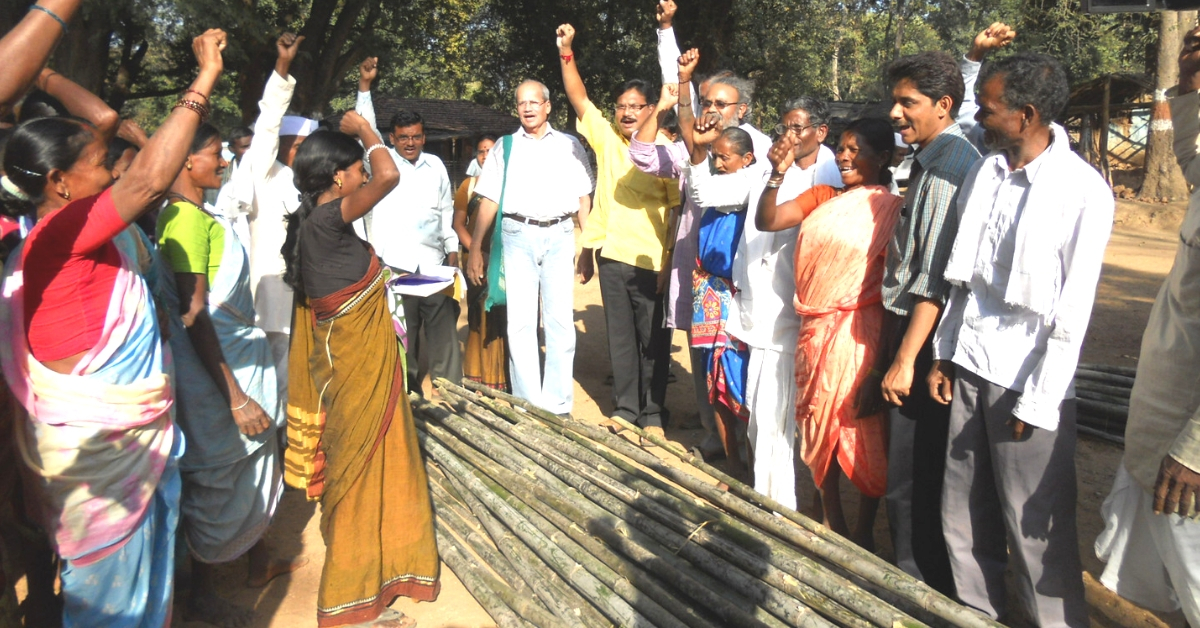
This article has been sponsored by the Jamnalal Bajaj Foundation
“Changemakers firstly need to understand the trend of the change and then change the direction to positivity, righteousness, justice, equality and humanity. This platform gives them much-deserved recognition and advances their cause to many more,” said Nobel laureate Kailash Satyarthi, one of the trustees of the Jamnalal Bajaj Foundation (JBF) and a jury member of Jamnalal Bajaj Awards.
Established in 1978 by JBF, the Jamnalal Bajaj Awards are one of the longest-standing awards in India. They are meant to recognise the unsung heroes who have inspired many across the world, to acknowledge the selfless efforts of individuals who have made a difference in society, and to promote community service and social development through the lens of Gandhian values. In a span of 41 years, the Jamnalal Bajaj Foundation has gained respect as a Gandhian establishment working for the socio-economic development of the country.
JBF was established in the memory of Jamnalal Bajaj, a close associate and the adopted fifth son of Mahatma Gandhi.

Every year, the Foundation presents these awards in four categories namely Award for Outstanding Contribution in the Field of Constructive Work; Award for Application of Science and Technology for Rural Development; Award for Outstanding Contribution to Development and Welfare of Women and Children; and International Award for Promoting Gandhian Values Outside India.
This year, the Award for Outstanding Contribution in the Field of Constructive Work was given to Gandhian and social activist of Uttarakhand, Dhoom Singh Negi. Also known as ‘Guruji’, he has dedicated his life to various environment conservation movements, especially the iconic Chipko movement.
He dedicated his life to the cause and his advocacy and perseverance led to a ban on tree felling above 1000 meters, illegal resin tapping and collection.
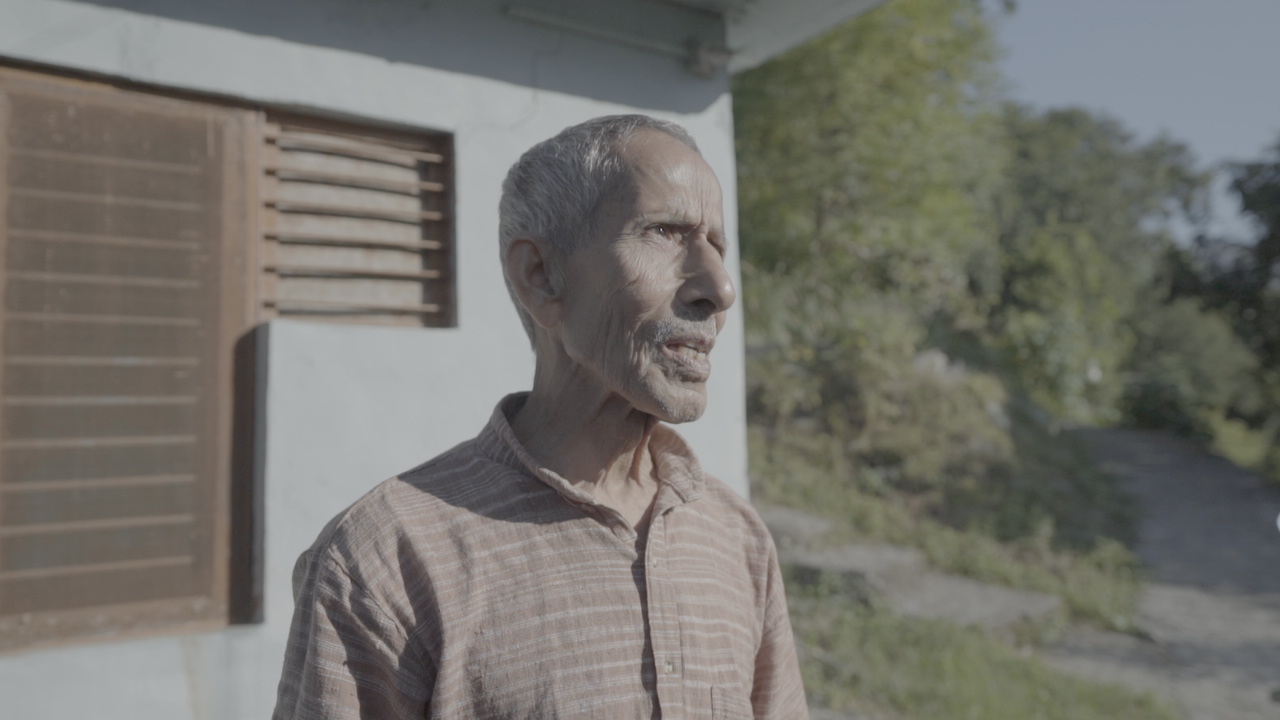
A native of Pipaleth village of the Tehri Garhwal region of Uttarakhand, the 79-year-old has led his life on Gandhian principles, promoting a sustainable and eco-friendly lifestyle.
The award in this category recognises the contributions in any of the eighteen development areas based on Mahatma Gandhi’s Constructive Programmes, which help create a self-reliant community in rural India. These development areas include communal unity, removal of untouchability, village industries, village sanitation, basic education, adult education, knowledge of health and hygiene, provincial languages, economic inequality, labour, and more.
In the past few years, others who have been honoured with this award include Shashi Tyagi from Rajasthan. She was felicitated in 2017 for her work in rural areas to combat substance abuse, caste and gender discrimination, purdah system, women seclusion, poor health, illiteracy etc.
In 1983, she founded the Gramin Vikas Vigyan Samiti (GRAVIS) in Gagadi village, Jodhpur. The organisation, under her leadership, works in the northwest region of Rajasthan across six districts–Jaisalmer, Jodhpur, Bikaner, Nagaur, Jaipur and Barmer–covering around 1,200 villages and serving about 1.2 million people.
It works on issues like women empowerment, primary education, healthcare, agriculture and afforestation.

The same award was conferred to Mohan Hirabai Hiralal in 2016, an active member of Jayaprakash Narayan’s Chhatra Yuva Sangharsh Wahini and a believer of Gandhiji-Vinobaji’s thesis of people’s power. His work helped the people of Mendha Lekha village in Maharashtra in making their Gram Sabha more inclusive, participatory and active. Additionally, he helped villagers focus on women’s participation, alcohol prohibition, forest conservation, fight against corruption, cultural rights, youth empowerment, sustainability, equity and security.
In 2013, after Hiralal’s incessant efforts, Mendha Lekha became the first village in India to be granted community forest rights, by becoming a Gramdan village under the Maharashtra Gramdan Act 1964.
This was after a struggle that lasted 30 years.
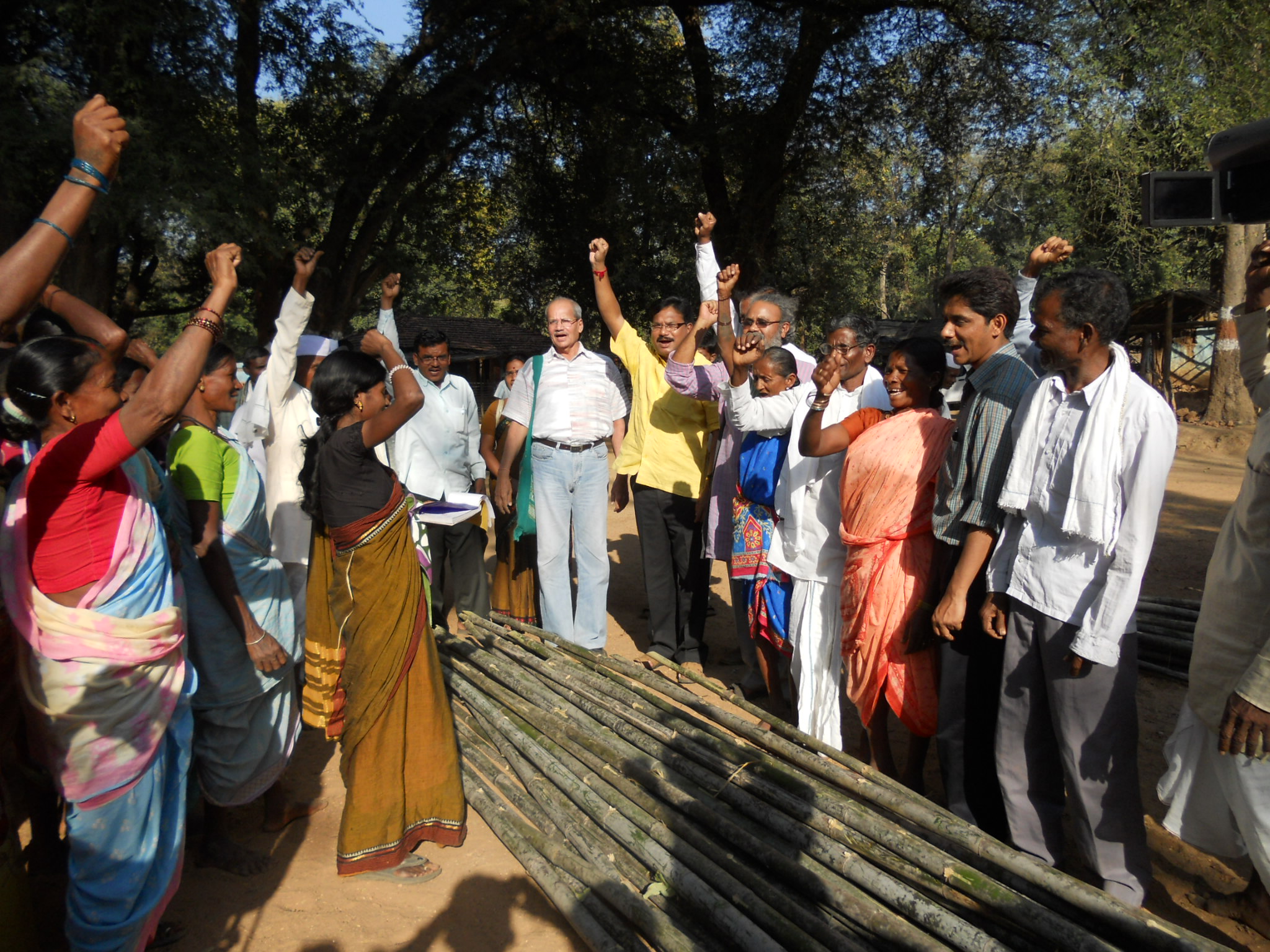
Each award category carries a citation, a trophy and a cash prize of Rs. 10,00,000/- (for the International Award, the Cash Prize is presented in equivalent foreign exchange).
Each year, JBF sends out letters and nomination brochures to around 2,500 to 3,000 individuals or institutions working in various fields including Sarvodaya movement, Gandhian programme of constructive work, appropriate technology, applied agricultural research, women’s and child welfare.
The offices of governors and chief ministers, members of parliament, foreign diplomatic missions, prominent journalists, NGOs, and vice-chancellors of all universities are also urged to send recommendations for the same. Self-nominations, however, are not considered.
The year-long procedure of selection includes the clearance of nominations by various levels of the jury. After a shortlist is drawn up, a special Selection Committee recommends a panel of three to four names in each award category for the final consideration by the Council of Advisors. After detailed study and deliberations, the Council recommends one name from each category of Awards to the Board of Trustees of the Jamnalal Bajaj Foundation for final approval.
“The fundamental issue is about Gandhian values and creating an inclusive society by dismantling inequalities. So these awardees are exemplars in terms of setting up role models for the society and the nation,” says eminent scientist, Dr. R A Mashelkar, who is the Chairman of the Selection Committee of the Award for Application of Science & Technology for Rural Development and Member of the Council of Advisors.
Calls for recommendations for the nomination in the 42nd year of the award are already underway. The nominations need to be made on their official website, http://www.jamnalalbajajawards.org.
The last date for sending in the nominations for the 2019 Jamnalal Bajaj Awards is January 19 for the three national awards and February 28 for the international award.
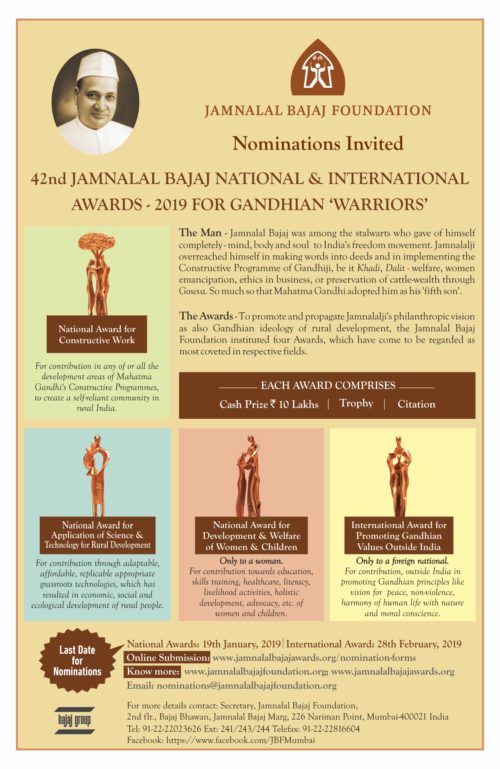
Find more details here.
(Edited by Shruti Singhal)
Like this story? Or have something to share? Write to us: [email protected], or connect with us on Facebook and Twitter.
If you found our stories insightful, informative, or even just enjoyable, we invite you to consider making a voluntary payment to support the work we do at The Better India. Your contribution helps us continue producing quality content that educates, inspires, and drives positive change.
Choose one of the payment options below for your contribution-
By paying for the stories you value, you directly contribute to sustaining our efforts focused on making a difference in the world. Together, let's ensure that impactful stories continue to be told and shared, enriching lives and communities alike.
Thank you for your support. Here are some frequently asked questions you might find helpful to know why you are contributing?


This story made me
-
97
-
121
-
89
-
167




